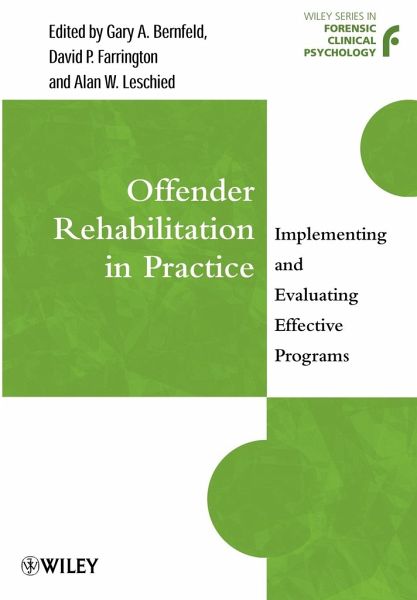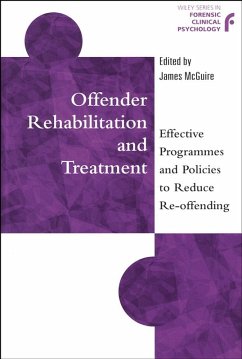
Offender Rehabilitation in Practice
Implementing and Evaluating Effective Programs
Herausgeber: Bernfeld, Gary A; Leschied, Alan W; Farrington, David P

PAYBACK Punkte
43 °P sammeln!
Offender Rehabilitation in Practice is the first book in its field to reconcile the perspectives of both researchers and practitioners. Bernfeld, Farrington and Leschied go beyond the concept of "what works", by combining a review of this knowledge, with an effective guidebook on the implementation of state-of-the-art programs in the field. Divided into three parts, all the chapters have either a programmatic, or an economic, or a policy focus. Part I discusses key issues in operational effectiveness. Part II details implementation issues arising from specific programs. Part III takes a much b...
Offender Rehabilitation in Practice is the first book in its field to reconcile the perspectives of both researchers and practitioners. Bernfeld, Farrington and Leschied go beyond the concept of "what works", by combining a review of this knowledge, with an effective guidebook on the implementation of state-of-the-art programs in the field. Divided into three parts, all the chapters have either a programmatic, or an economic, or a policy focus. Part I discusses key issues in operational effectiveness. Part II details implementation issues arising from specific programs. Part III takes a much broader view by reviewing the experiences of those involved in the implementation of, the evaluation of, and consultation for correctional programs across multiple sites. With its emphasis on technology transfer, Offender Rehabilitation in Practice will be invaluable to a wide range of professionals in the adult and juvenile correctional field, including practitioners, administrators, policymakers and researchers. This book is published in the Wiley Series in Forensic Clinical Psychology














